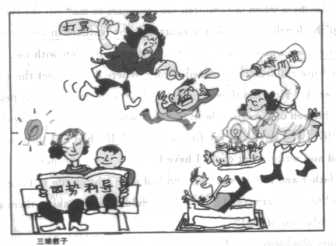题目内容
If the media can’t learn to respect and appreciate others’ cultures, there will exist _____ misunderstanding and harmony can’t be achieved.
A. admirable B. available
C. considerable D. Considerate
C
【解析】
试题分析:考察形容词辨析。Admirable 令人钦佩的,极好的; available 有效的,可得的; considerable 相当大的,重要的;considerate 考虑周到的,体贴的。句意:如果媒体不能学会尊重和欣赏别人的文化,那么将存在相当大的误解和不和谐。
考点:考察形容词辨析。

练习册系列答案
相关题目
